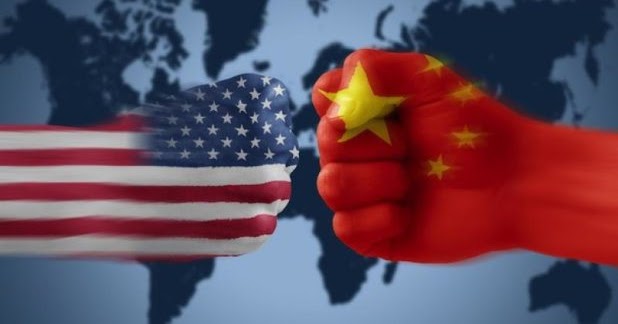All the differences between China and the United States in Afghanistan and beyond

What does the essay “Afghanistan. The return of the Taliban “(GoWare) by Amadeo Maddaluno. The review by Giuseppe Gagliano
Amadeo Maddaluno's essay “Afghanistan. The return of the Taliban “(GoWare, 2021), despite its brevity, allows us to reflect on some central aspects of contemporary geopolitics. And the author does so with limpid and clear considerations – largely acceptable -, free from heavy ideological mortgages.
Let's start with Afghanistan. If there was a real conflict in the true sense of the term – albeit in the asymmetrical context – between the allies and Afghanistan, this took place only in a very short period of time, as the author observes, and that is between the 2010 and 2011.
And the author notes how strategically irrational it is to think that you can control a country like Afghanistan with 100,000 men. How could the United States pretend to modify Afghanistan in a profound and radical way with such a reduced and so limited military device?
Again: did the Americans really learn the lesson of the defeat of the Russians? In no way!
But among the considerations that Maddaluno makes, our attention turns to an aspect that from our point of view is absolutely decisive. We are alluding to the fact that the United States does not know how to think historically – it is in fact obsessed with quantitative and sociological approaches – that is, it does not have, as the author says, a diachronic conscience.
So what was the American project for? To destabilize an area of the planet that from a geopolitical point of view is a fault between the main Asian Euro powers such as Russia, China and Western Europe to avoid that they can represent a danger for the American hegemony which is now at sunset.
And what about the other great geopolitical actor, the great Satan after Russia, namely China? The United States did nothing but wage wars at the end of the Second World War, destabilizing the Middle East and also Africa (mind you, like the former colonial powers).
China, on the other hand, has not crossed arms since the late 1970s – underlines Maddaluno -. Its approach is different than the United States and therefore they do not need to go to war, for example in Formosa – even if the United States constantly insists on this danger in order to increase the sale of arms to Japan – but with infinite patience to wait. an inexorable and silent economic colonization.
Why should China wage a tremendous amphibious war against the United States? And wouldn't a war of this kind end up completely isolating it from the world, cutting off all ties – as the author says – with its best trading partners like Japan and Korea and the United States itself that buys American debt?
As for the demonic and diabolical Chinese ideology, this is nothing more than a form of nationalism that serves China to counter and counterbalance the imperial ambitions of the United States and of course to fulfill its ambitions cross the Silk Road. Nothing disconcerting from a historical point of view. Let me be clear however: China remains a one-party and totalitarian political system.
In conclusion, hasn't the United States opened a real Pandora's box with the war in Afghanistan that it has no longer been able to control? Yesterday allies in an anti-communist role – remember when Reagan argued that the Taliban were defenders of freedom like the Contras in Nicaragua? -, enemies today. It is the fate of the United States – and all the European and non-European colonial powers – which first destabilizes the dictatorships and then allies with them at a later time. Or to build others.
Do you remember the role of France in Africa?
This is a machine translation from Italian language of a post published on Start Magazine at the URL https://www.startmag.it/mondo/cina-stati-uniti-afghanistan/ on Sat, 11 Sep 2021 06:00:13 +0000.
